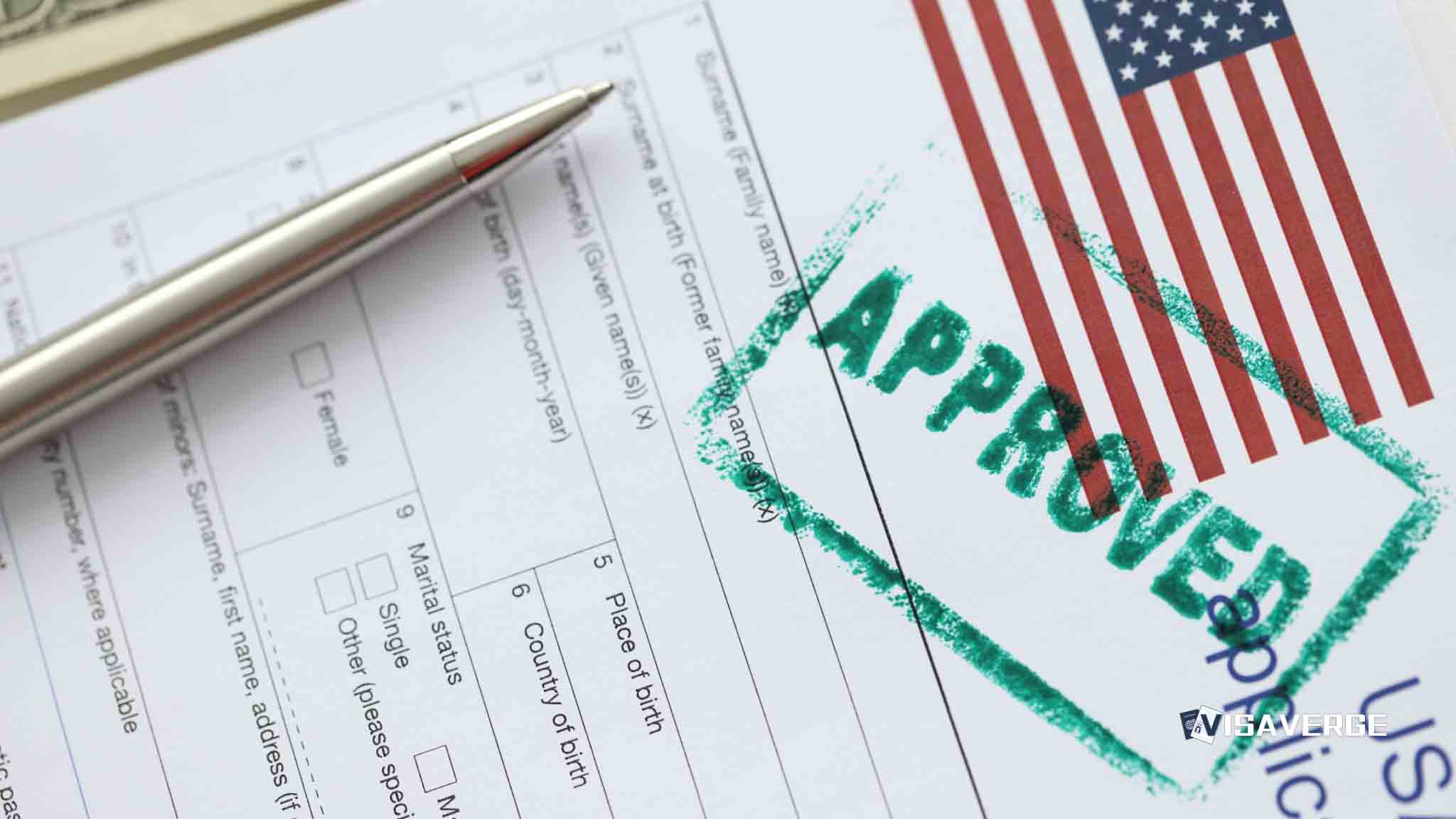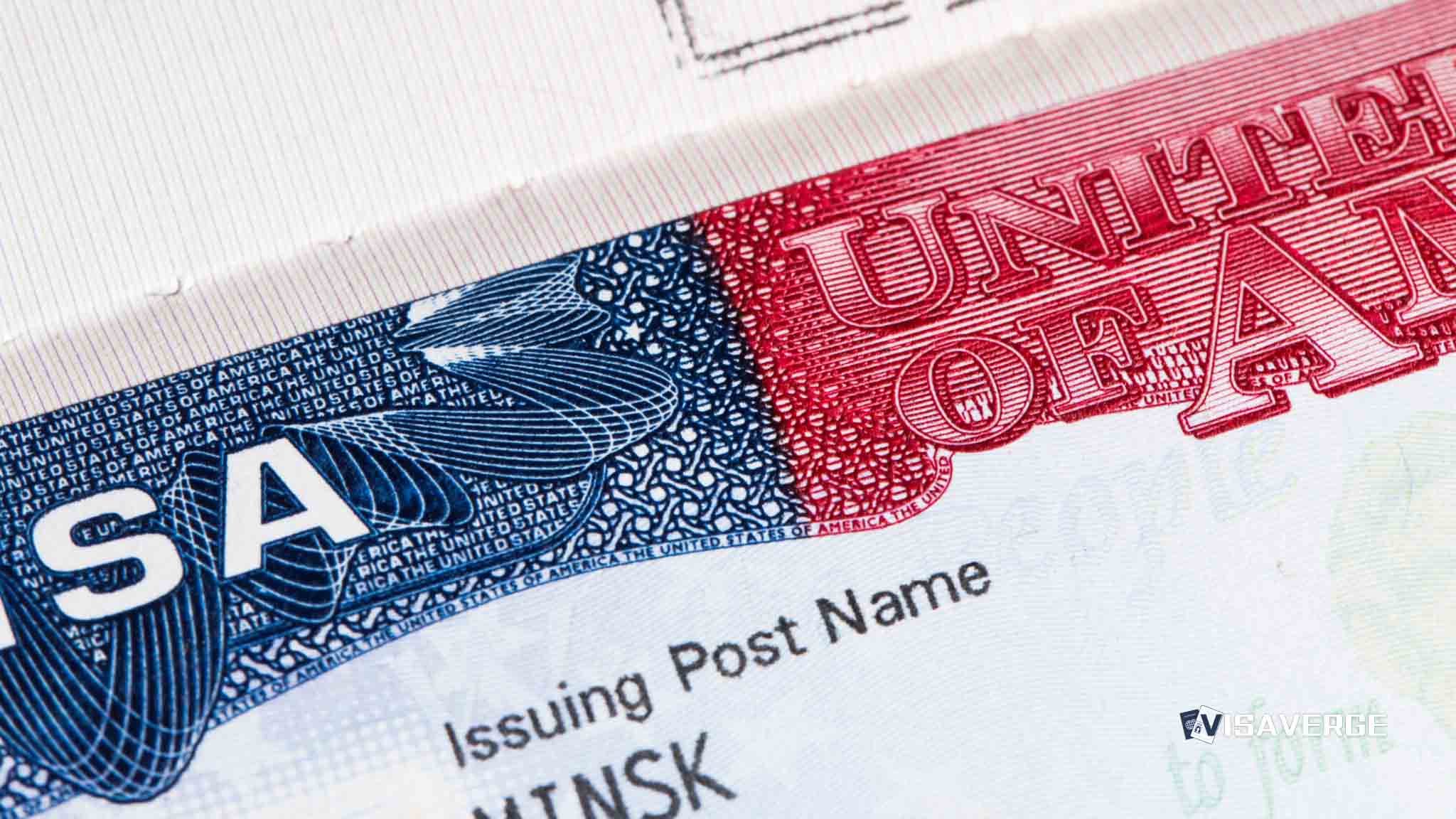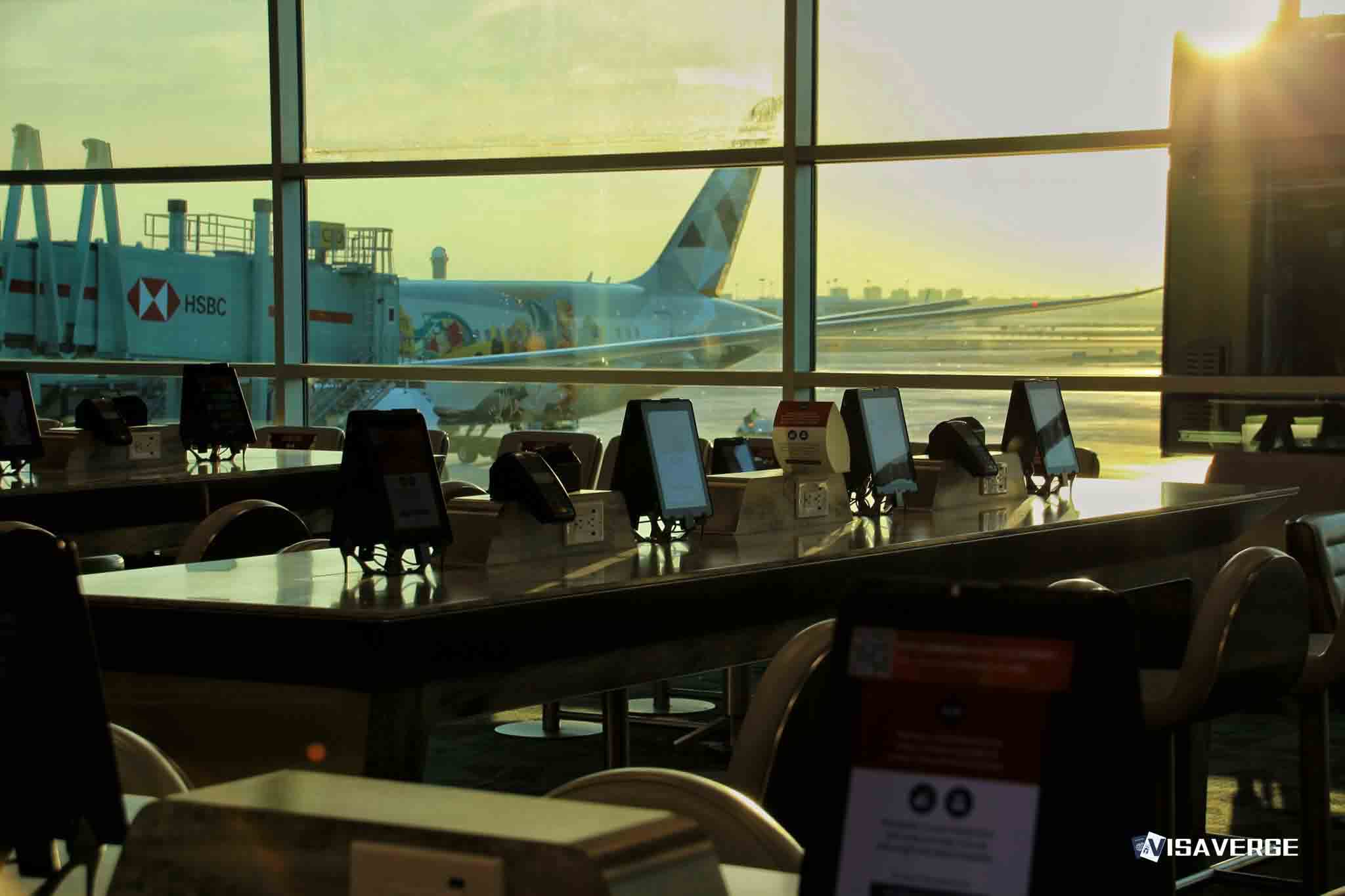(UNITED STATES) Travelers holding a valid U.S. visa can fly abroad and return during a government shutdown, and ports of entry remain open for inspection and admission. CBP officers continue to process arrivals, and consular sections at U.S. embassies and consulates generally keep visa interviews and case processing moving because those operations are funded by application fees rather than annual appropriations. Still, people should prepare for slower service and potential delays, especially if they will need a new visa to come back.
According to analysis by VisaVerge.com, the key point is simple: if your visa is valid, undamaged, and matches your travel purpose, you should be able to re-enter the United States even during a shutdown, though you might face longer lines or reduced appointment options.

Can I leave and will I be allowed back?
Travelers often ask two direct questions during budget limbo: “Can I leave the country now?” and “Will I be allowed back?” The short answers are yes, with caveats.
- Holders of a valid U.S. visa may depart and return.
- CBP officers are essential personnel and continue inspection and admission at airports and land borders.
- The biggest risk is for people who need a new visa to re-enter, because a prolonged shutdown can limit some consular services abroad.
Many immigration lawyers and campus advisors urge caution if your current visa has expired or will expire while you are out of the country.
Visa vs. authorized stay — the crucial distinction
The most important technical detail often gets confused:
- The visa is a travel document placed in your passport that lets you approach the border and ask for entry.
- The length of your authorized stay inside the U.S. is set separately at admission, either by an entry stamp or by your electronic Form I-94.
- The visa’s printed expiration date does not control how long you can remain after admission.
If you leave and return during a government shutdown, CBP will still issue or update your admission record during inspection. You can check or retrieve your most recent Form I-94 from the official CBP portal: Form I-94 (CBP).
Consular services during a shutdown
While visa issuance at consulates typically continues during a shutdown, staffing patterns and local conditions can lead to longer waits.
- Some posts may scale back non-emergency services if the shutdown lasts.
- That creates special risk for travelers who don’t already have a valid visa in their passport.
- If your visa is expired and you plan to apply overseas to return, you could be stuck abroad longer than expected if appointments are limited or processing slows.
Recurring theme: travel with an already valid visa is generally workable; travel that relies on getting a new visa is unpredictable.
What happens at the port of entry?
CBP keeps ports open during a shutdown and admission generally works as usual, though operational adjustments can affect airport lines.
- The inspection steps remain the same: the officer checks your passport, valid U.S. visa, and travel purpose, then decides the terms of your admission.
- If you receive a paperless entry, confirm your status later by pulling your Form I-94 online, which shows your class of admission and your admit-until date.
- Keep this record handy for I-9 employment verification, school reporting, or future extension filings.
Does the shutdown change your legal status inside the U.S.?
No. If you are already in the U.S. and maintaining valid immigration status, you remain legally present.
- A shutdown does not remove your status or your right to stay through the date shown on your Form I-94 or entry stamp.
- Your legal stay depends on the status CBP gave you at entry, not the current visa stamp.
This is especially important for students, workers, and visitors who might worry that the budget fight erases their lawful stay.
Practical advice: who should postpone travel?
The biggest decision hinge is whether you need a new visa to return.
- If you do, consider postponing the trip if it can wait.
- Consular services rely on fees, so they don’t close automatically, but a prolonged shutdown can still disrupt operations and prioritize emergencies.
- Travelers needing a fast visa renewal with a tight return date face extra risk.
Guidance for travelers with a valid visa
For those holding a still-valid visa, the advice is more flexible.
- You can leave and come back; most people do not see major problems at the border.
- Expect routine questioning and checks of your Form I-94 and entry history.
- The rules haven’t changed—only the pace might: lines may move more slowly and connecting flights could be tight.
VisaVerge.com suggests three simple checks before boarding during a shutdown:
- The visa must be valid through the date you return.
- The visa must match the purpose of your trip.
- The passport must remain in good condition (undamaged).
If the visa page is damaged, or the travel purpose no longer fits the visa category, you could face questions that lead to delays or, rarely, refusal of admission.
Special groups: students, business travelers, families
- International students: A shutdown won’t cancel entry if the visa is valid and SEVIS records are active, but longer lines and heavy travel windows can build stress.
- Business travelers: A sales trip is usually fine with a valid visa. The risk rises for those planning to apply for a new visa while abroad.
- Families with life events (births, funerals, urgent care): If you need a new visa to return, a shutdown could stretch a short trip into an open-ended wait. Many families choose to postpone travel for this reason.
Practical travel checklist (immigration attorneys’ recommendations)
- Confirm your visa’s expiration date and your passport validity.
- Ensure the visa class fits your purpose in the U.S.
- Print or save your most recent Form I-94 after your last entry.
- Allow extra time for airport processing on your return.
- If your visa is expired, weigh the risk of consular slowdowns before you leave.
- Keep proof of ongoing ties to your work, study, or home in the U.S. (employer or school letters).
These are common-sense steps that matter more when the system runs slower.
Appointments, airlines, and logistics
- Visa appointments usually continue because they run on fee revenue, but prolonged shutdowns can force some posts to cut back services.
- Monitor embassy emails and websites for local updates if your interview is essential to return.
- Airline and hub logistics matter: build wider margins for connections due to variable inspection line speeds.
Extensions, status changes, and documentation
- The source of lawful stay is the Form I-94 given at entry. A shutdown does not shorten that period.
- If you plan to seek an extension or change of status, a clean re-entry record and clear I-94 history make filings smoother.
- Carry normal supporting documents: passport with valid U.S. visa, travel itinerary, and, if helpful, employer/school letter.
Official resources
For background on visas and entry rules, see the U.S. Department of State resource: U.S. Visas (U.S. Department of State).
Also verify your I-94 after return at: Form I-94 (CBP).
Key takeaways
- If you already hold a valid U.S. visa, you can travel internationally and should be able to re-enter the United States, even during a shutdown.
- CBP will process you at the port of entry; your Form I-94 reflects terms of stay, not the visa’s printed expiration.
- If you need a new visa to return, consider postponing travel—a prolonged shutdown can slow consular services.
- If you are inside the U.S. in valid status, the shutdown does not take away your right to remain through your authorized period.
For many people, the right decision is to travel if the visa is valid and the trip is necessary, while those needing a new visa should consider waiting. The system remains functioning—just at a slower pace—so plan with extra time, carry supporting documents, and verify your Form I-94 after re-entry.
Frequently Asked Questions
This Article in a Nutshell
A government shutdown does not automatically prevent travelers with a valid U.S. visa from leaving and re-entering the United States. CBP officers are essential personnel and continue inspecting and admitting arrivals; ports of entry remain open. Important distinctions remain: the visa allows you to request entry, while Form I-94 or an entry stamp sets your authorized stay. Consular visa operations are typically funded by application fees and often continue during shutdowns, but staffing changes and prolonged budget interruptions can slow new visa issuance and reduce appointment availability. Travelers who need a new visa to return should weigh postponing trips, carry supporting documents, verify Form I-94 after re-entry, and allow extra time for processing.







